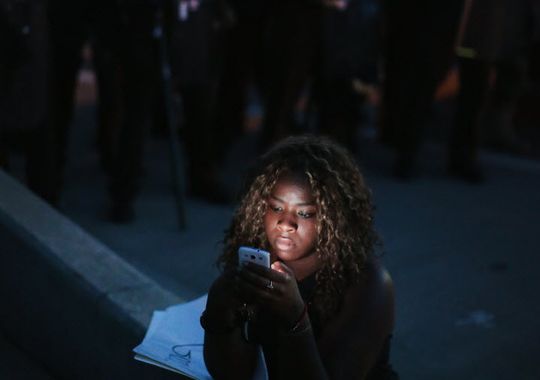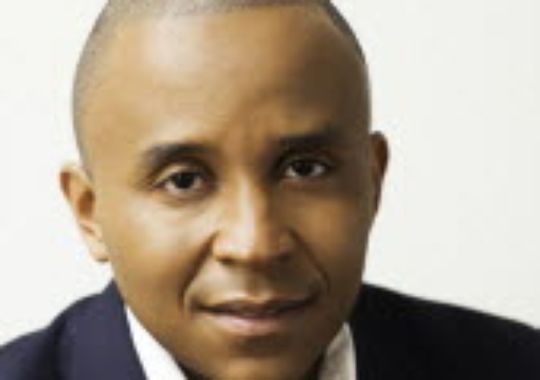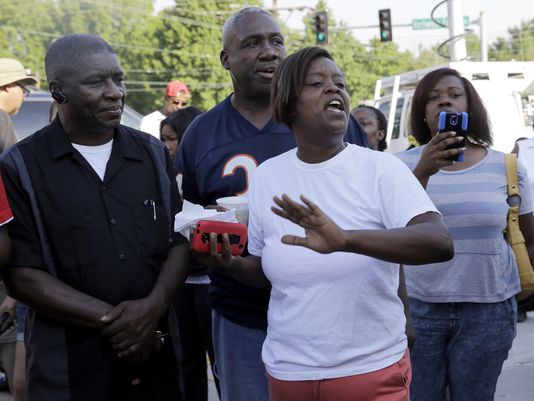Facebook talked ice buckets twice as much as Ferguson
HTTP/1.1 200 OK Server: nginx/1.2.7 Content-Type: text/html; charset=utf-8 Content-Language: en Last-Modified: Tue, 02 Sep 2014 17:31:10 GMT X-UA-Compatible: IE=Edge,chrome=1 X-Secret: cnpudnkgcnpiZXZnbUBoZm5nYnFubC5wYnogbmFxIFYganZ5eSBnZWwgZ2IgdHJnIGxiaCBuIHdiby4= Cache-Control: max-age=20 Expires: Tue, 02 Sep 2014 17:33:11 GMT Date: Tue, 02 Sep 2014 17:32:51 GMT Transfer-Encoding: chunked Connection: keep-alive Connection: Transfer-Encoding
SAN FRANCISCO — The Ferguson, Mo., protests dominated Twitter for days last month. Not so on Facebook.
Facebook users engaged with the "ice bucket challenge" viral fund-raising phenomenon more than twice as much as they did the Ferguson protests in mid-August, data obtained by USA TODAY show.
A random sample of 100,000 U.S. Facebook users' public timelines showed 3,250 were talking about Ferguson in their posts and activities from Aug. 9 to Aug. 20, according to an analysis by Portage Co., a Minneapolis, Minn.-based social analytics and educational company. That amounted to about 3.3% of Facebook users sampled.
In contrast, 7,703 were talking about the ALS ice bucket challenge, or 7.7% of the sample, for the same period.
Users engaged 2.4 times more on "ice bucket challenge" than they did on "Ferguson," says Portage CEO Alex Houg, who performed the analysis at the request of USA TODAY.
An engaged user was someone who commented on the topic, shared a link about it or liked a post with the key word.
The estimate seems to confirm what had been largely anecdotal – that a Facebook (Ticker: FB) user was much less likely to read about the Ferguson protests than someone on Twitter (Ticker: TWTR[1]).
Facebook releases data on how much users discuss certain events, say the World Cup, the Royal Wedding or the Olympics. But Facebook declined to comment on Ferguson.
Twitter, the reigning social network for breaking news, is expanding its arsenal of tools that make it easier for the public to see how often a topic is discussed.
Reverb, a new tool geared to journalists, shows that Ferguson or #Ferguson was mentioned 14.7 million times between Aug. 9 and Aug. 20.
Protesters tweeted photos of marchers, video Vines of interactions with the police, and as protests turned to looting and tear gas, images of smoke, arrests and gas masks. Some of these were retweeted tens of thousands of times.
FACEBOOK FILTER
On Facebook, the discussion around Ferguson, Mo. appeared more muted in the days following the Aug. 9 shooting of Michael Brown[2], the catalyst for the protests.
Instead, Facebook feeds appeared to be filled with friends calling on each other to donate to research on amyotrophic lateral sclerosis, or ALS, commonly known as Lou Gehrig's disease, and to dump a bucket of ice water on themselves.
The explanation for the disconnect was the big difference in how the two networks surface news.
A Twitter user sees what his or her followers are tweeting. While you can customize trending topics for location, it's also very easy to see what topics are hot among Twitter users worldwide – from boy band One Direction to professional soccer's Premier League to Ferguson.

A demonstrator protesting the shooting death of teenager Michael Brown looks at her phone as police keep watch nearby in Ferguson, Missouri.(Photo: Scott Olson/Getty Images)
Facebook is another story. It uses a ranking algorithm that filters what people see in their News Feeds. So what a person sees when he or she looks at the stream of posts and shared links is filtered based on that person's past activity, including posts liked, commented on or shared.
The idea is to make the Facebook News Feed more relevant to the user, but Facebook is often less able to respond quickly to breaking news that stretches beyond someone's previous interests and those of his or her friends.
In other words, even when Ferguson was being talked about on Facebook, many people still didn't see mention of it.
Rashad Robinson, executive director with grassroots civil rights organization ColorOfChange.org, says he saw Ferguson all over his News Feed. But he fielded calls from white donors who were outraged they did not.

Rashad Robinson, executive director, ColorOfChange.org. Photo by Heather Weston for ColorOfChange.org(Photo: Heather Weston for ColorOfChange.org)
They wanted to know why, and he suggested they ask their Facebook friends.
"People like Facebook for that, because it allows them to sit inside the world they want to sit inside of, and to be comfortable. The very nature of what's happening in Ferguson is not comfortable for many people," he said in an interview with USA Today.
Twitter is a very different kind of social network. It's a public square where breaking news travels fast and wide.
"Even if you are not necessarily interested in being a part of certain conversations, Twitter has a way of making you a part of those conversations," Robinson said.
#FERGUSON
Data on what was happening on both networks in mid-August contrasts how two offline occurrences played out on social media.
Icebucketchallenge or #icebucketchallenge was mentioned 1.55 million times on Twitter, according to Twitter data, or about one-tenth the mentions of Ferguson or #Ferguson.
Twitter took great pride in its role in Ferguson, painting the hashtag on the walls of its corporate headquarters in San Francisco. Twitter co-founder Jack Dorsey, who was raised in St. Louis and whose parents live there, marched alongside protesters in Ferguson.
When asked by USA Today on Twitter what he thought of the protests unfolding there, Dorsey tweeted: "Heartbreaking."
Antonio French, a St. Louis alderman who provided a near-constant stream of tweets and vines from Ferguson in the two weeks after the shooting, said social media was an outlet for people who felt they were witnessing a much different situation than the one played out on cable news and mainstream media, where at times, looting, violence and tear gas consumed the story.
"If you were here, you saw that the other 20 hours a day it was peaceful protesting, thousands of people, a lot of courage and beauty, democracy in action," he said in an interview.
Early on, he was one of the few people recording the protests. By the second week, many more people – and not just reporters – were recording on their cell phones. Social media connected the protesters' experience and concerns to people outside Ferguson, nationally and even around the world. When people came from outside the St. Louis area, it helped them figure out how to contribute, he said.
"I think when this story is written about, it will be hard to write about it without referring to it as hashtag Ferguson," he said.
Twitter, he said, became the network of choice because it was faster and had a limitless reach. For years, it has been embraced by younger black people and community activists because it was so easy to use on mobile devices.
A Pew Research study found that 40% of black Internet users aged 18-29 use Twitter compared with 28% of whites in that age group.
BLACK TWITTER
The cultural phenomenon called "Black Twitter," which played a pivotal role in the Ferguson protests, is a growing and vibrant part of the service.
Kimberly C. Ellis, author of the upcoming book The Bombastic Brilliance of Black Twitter, said she saw Brown, the unarmed teenager shot by a white police officer in Ferguson, Mo., trend in her Facebook account.
"That is a reflection of my friends," said Ellis, whose Twitter handle is @drgoddess.[3] "I hang with radical white people and black people."
But on Twitter, the walls between communities come down when news breaks. Ellis notes you can follow as many Twitter accounts as you want and you can search out news by keyword.
"There is just a greater democratization of space on Twitter," Ellis said.
And because users are confined to 140 characters in each message, people can scan more quickly through tweets to get "a greater diversity of information," she said.
"You had to be on Twitter to really understand what was happening in Ferguson," Ellis said. "If you missed that, you missed a lot."
Read or Share this story: http://usat.ly/1pEux5u
References
- ^ http://www.usatoday.com/money/lookup/stocks/TWTR/ (rssfeeds.usatoday.com)
- ^ http://www.usatoday.com/story/news/nation/2014/08/12/st-louis-teen-shooter-name/13953997/ (rssfeeds.usatoday.com)
- ^ https://twitter.com/drgoddess (twitter.com)










